
Fasting Primer: What is Fasting? What is The Benefit of Fasting? What are The Effects of Fasting? Can I Exercise While Fasting?
What is The Difference Between Water Fasting and Juice Fasting? What are The Most Common Fasting Detox Symptoms?
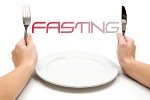
What is fasting? If you are interested in utilizing fasting to either lose weight or improve your health, then it is important for you to know what is fasting, what to expect and watch out for. What is fasting? That’s what this article is all about. So, please, when you finish reading it, take a moment and leave feedback and/or questions at the Facebook comment box bellow.That way you can add your own experience for the benefit of the entire fasting community. For centuries, the benefit of fasting diets has centered around physical healing, balancing the body and promoting spiritual awareness, like via fasting and praying. What is fasting, exactly? The definition of fasting is: "verb, gerund or present participle: fasting - abstain from all or some kinds of food or drink, especially as a religious observance. synonyms: eat nothing, abstain from food, refrain from eating, go without food, go hungry, starve oneself; go on a hunger strike; crash-diet."
Origin Old English fæstan (verb); related to Old Norse fasta, the source of the noun. If you are interested in fasting for weight loss and wellness, you need to first consider what your goals are. Do you just want to lose weight, or do you also want to balance your body and become healthier and stronger? If you simply want to lose weight and return to unhealthy eating habits afterward, fasting is probably not the right path for you. The real purpose of fasting for weight loss is to cleanse and detoxify the body so you can then embark upon a healthier lifestyle and keep the weight off permanently.
SO WHAT IS FASTING?
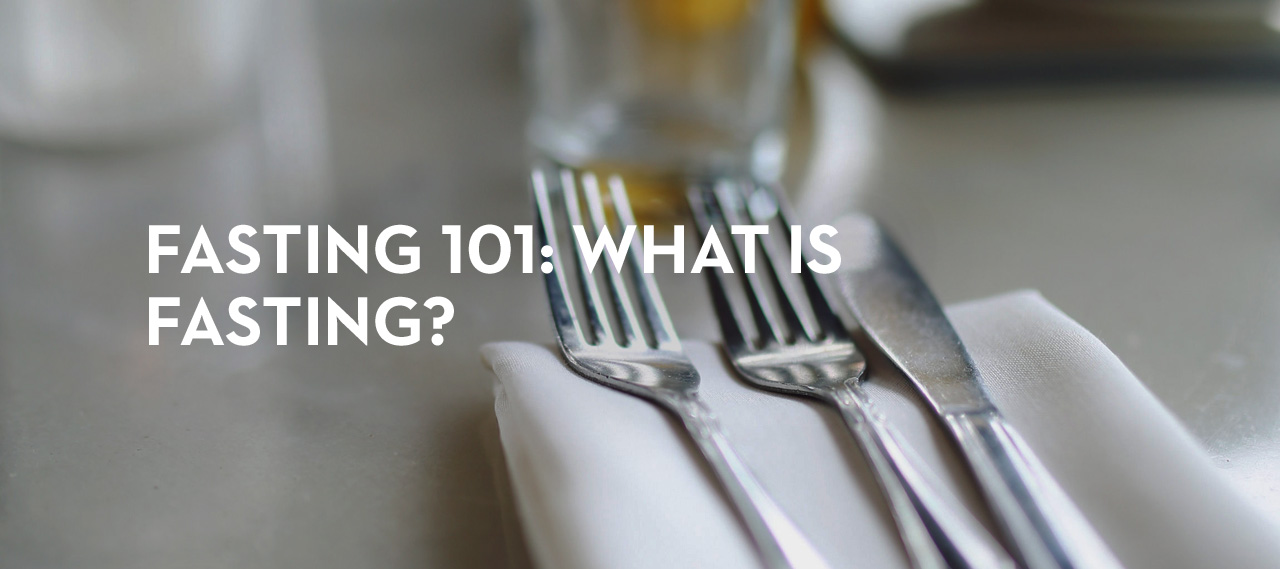
Fasting can help you to: *Release toxins *Clear addictions
*Heal ailments *Hydrate your body *Increase energy
*Improve mental clarity *Strengthen your spiritual connection
Before we continue exploring what is fasting and the many ways to do this, it’s important to note that:Fasting puts the body (at least initially) under notable stress. If you have an illness that you are being treated for; if you take medication; or if you have a heart condition or any other serious condition, then fasting has to be done with extreme caution and with the direct supervision of a qualified health professional. Even if you consider yourself to be completely healthy, it’s important to check with your doctor to be sure fasting is safe for you. Find a qualified doctor that supports fasting and work closely with him or her to bring your body back into balance. Quick sidebar: Because I am asked what is fasting so often, and because of the great feedback from readers, I decided to record a video where I talk about what is fasting and answer some of the most asked questions. You can watch that video at your leisure HERE. I provide a lot of fasting tips and information related to alternative fasting and cleansing. I’ve also shared My Fasting Testimony so that you can learn more about me and where I come from. I think it is important for any person who gives instruction to let others know how he or she came to this knowledge. It's really a matter of trust. If I am open with you and tell you about my past without reservation, hopefully you will be motivated and more inclined to trust my advice. To be sure, you will know that I experienced what is fasting in my own body and did not read it in a magazine! :-)
Ok, let’s move on with our fasting primer. What is Fasting? Please note: The information we are about to cover should serve as a good educational starting point, but is not intended to be and should not be construed as medical advice. It will, however, answer a lot of 'what is fasting' type of questions.
what is fasting ? different types of fasts
There are several kinds of fasts you can undertake, depending on your goals and experience.
WATER FASTING
The best known type of fast is a water fast. What is fasting? You eat nothing and drink only purified water for a period of 24 hours or longer. A water fast is the most challenging kind of fast, and it is often too strenuous for beginners. Not only is it difficult to handle the intense hunger pangs that result, you may also be surprised by the intensity of detoxifying side effects you experience. On a water fast it is not unusual to feel very weak, dizzy, and nauseous. You may also have strong headaches (especially if you are a heavy coffee drinker), diarrhea or constipation, bad breath, a white, sticky film on your tongue, dark, yellow urine that smells like sulfur and strong flu-like symptoms. While these symptoms are unpleasant, they signal that your body is actually ridding itself of toxins stored in the bloodstream, digestive system and around/behind vital organs. You may not feel very good, but you actually are getting healthier and stronger! For more on this discipline, please visit our Water Fasting series of articles.
WHAT IS FASTING ? juicing FOR
weight loss AND detoxification

What is fasting? A juice fast is usually less intense than water fasting because you drink natural fruit and vegetable juices, which provides nutrients and eases the intensity of the side effects. However, with this kind of fast you cannot use bottled juices; you need to use a juicer to squeeze organic fruits and vegetables, so there is a bit of a financial investment if you don’t already have a juicer. The good news is that they aren’t as expensive as they used to be years ago – you can find some decent models for as little as $75. Furthermore, there is now an exciting new model called the NUTRIBULLET which allows you to juice individual portions. This makes much less of a mess and gets the juice to your lips much faster. The NUTRIBULLET typically runs around $99, although I have seen it in sale for as little as $50. For much more on this discipline, please visit the Juice Fasting series of articles.
fasting for detoxification
What is fasting for detoxification? A detoxification fast is a little different than water and juice fasts. In fact, some people may not consider it a “fast” at all because you may still be eating solid food, but the key is to change the quality and type of food. For example, one common form of detoxification fast involves eating raw, organic food only. Nothing cooked. Obviously that means a vegetarian or vegan diet, since it’s unsafe to eat raw meat. Other detoxification fasts may indeed be liquid-only, including plenty of fresh juices, water, and herbal teas to help cleanse the body. It is during this kind of fast that many people look into colonic irrigation, liver/kidney/gallbladder detox and/or at-home colon cleansing.
What is Fasting? Partial or
Intermittent Fasting
What is fasting 'intermittently'? A partial or intermittent fast involves fasting for part of each day, or abstaining from specific foods or beverages but otherwise following your normal diet. This kind of fast is helpful when you want to give up a certain food or drink, like sugar or coffee; or a substance like nicotine. To help cleanse the body, you might start drinking herbal teas, water with lemon, or simply filtered water – but the rest of your diet would remain the same. No matter which kind of fasting method you wish to use, you’ll need to take your time and prepare for it instead of impulsively jumping in with both feet. For much more detail on this discipline, visit the Intermittent Fasting page. Now, let's take a look at some very good suggestions for preparing to fast.
preparing to fast
Fasting should not be taken lightly. It can be a big shock to the system – physically, mentally, and emotionally. To lessen this shock, it’s a good idea to take a few common steps.
Choose a Good Time to Fast Since
fasting can be physically draining, it’s a good idea to choose a time
when you aren’t required to do a lot of physical activity. Choose a
weekend, or perhaps when you have some vacation time and will be
spending it at home. It’s important to be able to rest frequently if
you need to. Avoid fasting when you’re very stressed, busy, or sick
with a cold or flu because you may not have the energy to handle the
strain of fasting. Also avoid fasting when you have to attend a big
party, wedding, or other function where food will feature prominently.
Even if you are strong enough to abstain, you may feel uncomfortable
watching everyone else eat, or receive a lot of questions from other
people about why you aren’t eating.
Start Small If
you are brand new to what is fasting, you definitely don’t want to start by
diving straight into a 30-day water fast. That’s simply too much for
most people. Instead, a 24-hour juice fast might be more manageable. If
that still seems like too much, you could even try a simple 12-hour
fast from dawn until dusk. If you have no trouble doing that, you may
be ready for a more strenuous fast.
Prepare Your Body A
week or two before you plan to start fasting it’s a good idea to start
eliminating sugar, caffeine and processed foods from your diet. Drink
more water and start eating more fresh vegetables, fruit and salads. If
your diet has been particularly unhealthful for several years, you may
even want to start this clean-up process earlier before you attempt what is fasting. Jumping straight into a fast from a chronically
unhealthful lifestyle can be extremely difficult, and a short period of
preparation like this can help immeasurably.
how to handle a fast - cravings, hunger and detox symptoms
The first day of a fast is always most challenging, no matter what is fasting. There are several common challenges that arise for most people: The first thing you may struggle with is a strong craving for foods and beverages you used to enjoy every day. For example, coffee or whatever you usually eat or drink first thing in the morning. You may feel a twinge of anxiety (“How will I make it through the day without coffee?”) or you may simply feel deprived. Cravings can also arise when you smell food cooking, or when you see others eating, or when your customary breakfast, lunch and dinner hours come around. You may be surprised to realize just how much you used to look forward to meals and snacks! You will find that all cravings can be dealt with effectively by reminding yourself why you chose to fast in the first place. Reaffirm how important your goals are, and remind yourself that you won’t be fasting forever – you’ll be able to enjoy many great meals in the future. Cravings can be lessened by drinking seltzer water with a tiny squeeze of lime. There is something about the effervescence in the water that settles the belly. For weakness, you can try a cup of green tea, which will give you a boost of energy.
What is Fasting? Hunger Pangs Another common challenge with fasting is recurring hunger pangs – that empty, growling, hungry feeling in the pit of your stomach. These can be challenging to overcome, but they usually decrease in intensity after a couple of days.
In the meantime, it’s helpful to drink a lot of water, as well as hot beverages like herbal tea or hot water with lemon.Seltzer water is also good to calm hunger pangs.
Sometimes just distracting yourself from the urge to eat can help a lot too. Try reading, meditating, light cleaning, anything to take your mind off of food. When you have time, check out a short video and accompanying page that I wrote on what I call Distraction Visioning.
What is Fasting? Feeling Lost or Left Out If you live alone and can limit your interaction with other people while you are fasting, it will be easier to avoid temptation. However, if you live with other people or have to interact with other people while you are fasting, you may find that you feel left out when you see them eating. Even if you can isolate yourself completely, you may notice that you feel lost or restless, not quite knowing what to do with yourself. Eating normally monopolizes a large part of your day and you may not realize it until you stop eating and suddenly feel like you’ve got too much time on your hands.
The best way to deal with these feelings is to simply accept them as a natural part of fasting, remind yourself of the important reasons why you are fasting, and affirm that you will be able to enjoy great food again. You may find it helpful to keep repeating encouraging words to yourself, like, “This is only for a few days; I can handle this; I’m doing a good thing for my body . . .” In addition, I have found it very useful to write on a journal while I am fasting. Every time hunger pangs or other symptoms come up, I open the journal and write how I'm feeling, always emphasizing the 'strong' reasons why you are doing this. Emphasize how great you will feel if you stick to the fast, finish it and accomplish all of your goals. Remind yourself that there are some very powerful reasons why you are fasting.
What is Fasting? Weakness and Symptoms Feelings of weakness are common while fasting, simply because you have stopped providing the amount of fuel that your body is used to having. Even if you are doing a juice fast, you may still feel a little more tired than you usually do. The obvious solution is to take it easy. Take naps, rest a lot, and perform only modest activities that don’t require a lot of physical energy. Remember that a cup of green tea early in the afternoon can give you a nice pep so that you can finish your daily tasks. It is important, however, for you to realize that you simply won't be performing at the same speed and intensity that you may be accustomed to. In addition, be careful with dizziness and weakness. Make sure to rise slowly from a sitting position, always having something close-by to hold on to in case you wobble. Most people notice that after several days of what is fasting a renewed sense of energy returns, but it’s still a good idea to go easy on yourself and avoid overdoing it physically. For that reason, restrict physical exercise to a mild walk, no longer than 20 to 30 minutes. Even if you feel like you could do a full intensity workout, stick to the mild routine. Remember, the body is handling a lot of toxins and is under tremendous stress.
What is Fasting?
DETOXIFICATION SIDE EFFECTS
What is fasting? Side Effects. Probably the most challenging aspects of fasting are the detoxification side effects. Not everyone will experience these, but many people will. I already mentioned most of these earlier, but it's a good idea to go through them once more for the sake of thoroughness. Side effects include unpleasant physical symptoms like chills, aches and pains, dizziness, nausea, headaches, fatigue, diarrhea, constipation, acne breakouts, strong body odor, and bad breath. In most cases these symptoms can’t be avoided; it is simply your body’s way of releasing toxins that have built up in the body. Drinking plenty of water can help flush the toxins out more quickly – but be prepared to spend a fair amount of time in the restroom for a day or two. Take regular showers and use a loofah or some other kind of sponge to scrub the skin gently so as to assist the body in the removal of toxins. What is fasting has a renewing effect on the skin, but you have to be diligent and use the loofah to scrub it regularly.
A WORD OF WARNING
While the above symptoms are normal during what is fasting, be aware that very intense side effects can be a sign that something is wrong. For example, if you experience heart palpitations, strong episodes of dizziness or fainting, extreme weakness, or other excessively strong side effects, discontinue the fast immediately and consult your doctor. This is especially important if you take medication, if you are diabetic, or if you have hypoglycemia (low blood sugar). A fast will affect these conditions in adverse ways. Again, consult your doctor before attempting a fast to be sure it’s safe for you.
for how long should I fast?
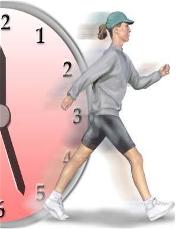
When you want to use fasting for weight loss, you may think that you need to abstain from eating until you’ve lost all of the excess pounds you are carrying, but that is not necessarily a good idea. First, consider how much weight you need to lose. Five pounds? Ten pounds? Smaller amounts of weight like this can be lost fairly quickly while fasting. However, if you need to lose 20 pounds or more, it’s not a good idea to undergo a complete fast to lose all of that weight consecutively (unless your doctor instructs otherwise). Instead, see fasting as a jump-start into a new healthier lifestyle that will result in long-term, healthy weight loss. You may indeed lose 5, 10, or more pounds during a fast, but a significant portion of that weight is going to be retained water, not fat. On longer fasts, there is also a risk of losing lean muscle tissue in addition to water and fat. How long to undergo a fast is definitely a personal decision, and it will depend on your goals, as well as your current condition. If you are a beginner and have never fasted before, it’s wise to go slowly and start with a partial fast, or perhaps a one-day juice fast. Then note how you feel. Did the fast seem to have a positive effect on you? Do you feel clearer mentally and physically? If so, wait a week before trying another brief fast. If these shorter fasts work well for you, you can even fast for one or two days each week if you want to. After you’ve mastered shorter fasts, you may be ready to try a longer one. Common duration for fasts are 3 days, 7 days, 14 days, 21 days, and 30 days. It’s usually best to work your way up to the longer fasts over time, rather than jumping from a single day fast to an intense 30 days of what is fasting. If you find that you struggle with even a one-day fast, you might try a partial fast first. A partial juice fast would entail eating one small, balanced meal, and drinking fresh vegetable and fruit juices for the other two meals each day. Another example of a partial fast would involve eliminating all processed, refined foods from your diet and eating only whole, natural foods. Still another example would be eating mostly raw fruits and vegetables and eliminating cooked foods. There are many ways to fast for weight loss and wellness – simply consider which of your eating habits most needs to be changed and choose the type of fasting that will help you to accomplish that. Ease into it and stick with it for as long as you feel is right for you, or for as long as you doctor suggests.
how to break a fast
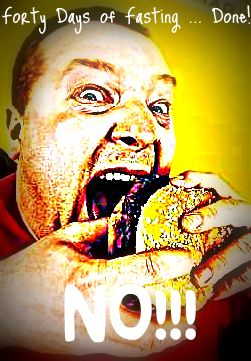
The way you break a fast is very important, especially if you have been fasting for 3 days or longer. If you have been following a complete what is fasting – meaning no solid food whatsoever – it’s vital to reintroduce food into your body very SLOWLY. Be gentle with your digestive system, it has been on hiatus for awhile! A good way to start gently breaking a water fast is by ingesting small amounts of fresh vegetable and fruit juices (not bottled, only those you have pressed yourself so they contain all of the natural nutrients and no preservatives). Continuing to drink plenty of water is important, but don’t gulp the vegetable and fruit juices too quickly – sip them slowly and allow your digestive system to wake up. If you have been on a long water fast, you may want to simply stick to juices for one whole day or two before gradually eating solid food again on the second or third days. If you have been juice fasting, you can break the fast by eating small amounts of solid food – but whatever you do, don’t dive into a big, heavy meal. Your stomach and intestines will not be happy, and it can be dangerous to overload your system like that. Instead, a small serving of fresh, raw fruit is gentle enough not to overload your system. Good choices for fruit would include bananas, melons, grapes, cherries, and citrus fruits like grapefruit and oranges. Eat slowly, chewing each bite fully and pausing a few minutes between bites to see how you feel. If you feel nauseous after a few bites, stop eating and give your stomach time to digest what you’ve just eaten. Try eating again a few hours later and see if it feels better. Rather than feeling nauseous, you may feel rejuvenated and discover that every bite of food is delicious and flavorful, much more so than before. This may tempt you to eat more than you should, so be careful to restrain yourself and eat only small servings of fruit to begin with. On the second or third days (depending on how long your fast was, and whether it was a juice or water fast) you may want to try a few small servings of vegetables. You can eat them raw or cooked, but again, eat slowly and chew each bite very well to help your stomach digest the food more easily. Over the next several days you can gradually reintroduce other foods back into your diet, like grains, dairy products, and fish and poultry. However, try to avoid foods that are heavy, oily, fried, or overly refined.
POSSIBLE SIDE EFFECTS
FROM BREAKING A FAST
After the initial detoxification symptoms of your fast passed, you probably felt great. You may have enjoyed feelings of lightness, euphoria, inner peace, well-being, emotional calmness, physical energy, and mental clarity that you’ve never experienced before. When you begin eating solid food again, however, it’s possible that those feelings will dissipate quickly. You may feel a bit weighed down, sluggish, or emotional, which can be upsetting when you were just feeling so wonderful a few minutes before!
Don’t worry; these feelings are normal and they do not last for long – especially if you take care to watch your diet carefully after what is fasting. We’ll be covering the various aspects of that in just a moment, but first let’s go over some other things you can do to recapture and maintain that feeling of inner peace and well-being.
GET ADEQUATE REST
One of the reasons why you probably felt so good during what is fasting is because you took it easy physically. Since you didn’t have a lot of energy available, you probably rested frequently. If so, it’s not surprising that you felt happy and relaxed during your fast. To keep that good feeling going after you break your fast, you simply need to take care to get adequate rest each day. Be sure to sleep a full 8 hours each night when possible. Give yourself permission to rest if you get tired during the day. Some days you may not be able to do that, but compensate by making sure one or two days a week are low activity days where you can rest, recharge, and rejuvenate.
daily meditation
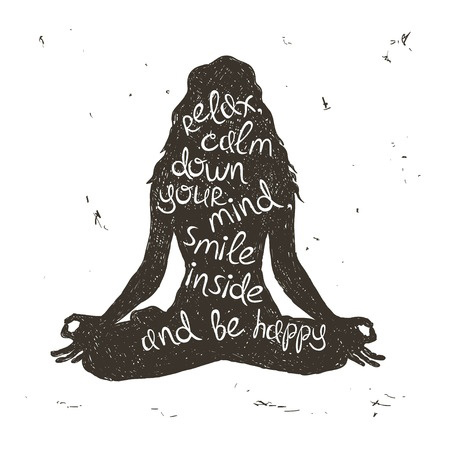
Meditating for a short period of time each day is a good way to keep that sense of spiritual connection strong. Simply find a quiet place where you can be alone, close your eyes, and breathe deeply for 10 or 15 minutes. If sitting quietly is difficult for you, you might try listening to soothing music or taking a slow walk through a park – these are forms of meditation too. The key of this exercise is for you to 'train' your mind to enter into silence at your command. At first this can be easier said than done. Especially if one has never tried to discipline the mind, there will be resistant. But the resistance MUST yield to your persistent practice of silent meditation. You can do the meditation with your eyes closed, or you can keep your eyes open and focus your gaze on something beautiful nearby like, for example, a lake, trees, flowers, the sky - anything at all will work. At first you may not be able to last longer than ten minutes before the mind goes wild with all kinds of thoughts about this and that, this and that. The mind will 'rebel' against the discipline, much like a horse bucks when it is first ridden by a human. But, in the measure that the cowboy sticks to his guns and stays on the horse, the animal eventually stops resisting and can be ridden from that point forward. The same is with the mind. Your short-term goal could be to meditate (empty of all thoughts and images) for 15 minutes. Then shoot for 30 minutes and beyond. If, over time, you can discipline yourself to meditate for ONE HOUR straight, you will undoubtedly begin to experience some serious mental and emotional breakthroughs in your life. Something amazing will begin to happen to you in your daily life. You will have unexpected jolts of intuition, inspiration, joy, patience...happiness. But once you empty the mind, then the time comes to fill it. If you believe in God as I do, ask Him to fill your mind with His thoughts, His ideas, His wisdom so that you can live a more effective life. This is a prayer that is always answered because God desires to draw near to you more than you can imagine.
stress management

What is fasting? Chronic stress can place a burden on your body, leaving you feeling run down, exhausted, cranky, and unwell. Combat this by practicing good stress management daily. Avoid getting entangled in negative thoughts. Mentally let go of things that are bothering you, especially if they are things that you have no control over. Breathe deeply and make time to do things you enjoy. Burn off tension with physical exercise, and take good care of yourself, mind, body and spirit. All of these things will keep you feeling balanced, calm, and happy after your fast. One particular discipline that has helped me immensely in the area of stress is that of constant journaling. I am constantly writing in my personal journal what I'm thinking, how I'm feeling, what my goals are and what I need to do in order to achieve them. For me, stress came a lot because I felt my life was going nowhere and that I had no direction whatsoever. Most days felt like wasted days because I didn't feel like I was moving in the direction of my destiny. When I started writing, this immediately changed. I found myself writing down golden nuggets of inspiration and intuition that I had not found through other means. The more I wrote, the more I felt like I was putting order in my life. I began to see what things I needed to do to accomplish my goals and what things I needed to stop doing. Putting our thoughts, ideas and lives in writing gives them a certain creative power that is unavailable if all we do is let thoughts float around our minds. What is fasting from negative thoughts and emotions if not a positive form of holistic healing?
after the fast - a new dawn,
a new life and a new freedom
What is fasting? When it comes to eating, what you do after the fast is even more important than the fast itself. Fasting helps to purify your body, releasing toxins and chemicals. When you finish what is fasting, your body will be clean and you will have a wonderful sense of well-being. The question is: Do you want to keep it that way? When you break a fast, hunger will return with a vengeance and, along with the mental minions, will resume it's ceaseless argument of why you need to eat more, eat junk, not observe times in between meals... basically the body and the mind will want chaos to reign and put you in a position where you give in, regain all of the weight you lost and feel the terrible remorse and shame that always comes. So, without a doubt, the last thing you want to do after a fast is start eating a lot of unhealthful, low-quality food again. Forgive my 'french,' but even if your butt falls off, do NOT want to give in to the chaotic voices that want you to give away all of your hard work. Don't lose your what is fasting work. Stick to the re-feeding plan. Drink lots of water. Keep relying on seltzer water for hunger and other symptoms. The best diet to follow after a fast is really common sense – a healthful, nutritious, whole foods diet will keep your body energized and happy. (If you aren’t sure what such a diet would include exactly, take a look at the general guidelines below.) One important point to keep in mind with what is fasting is whether or not it is normal to gain a few pounds back once you start eating solid food again. That does not mean the fast didn’t work! As you transition to a healthier diet and resume physical activity, the pounds should continue coming off, but be patient.
DRINK PLENTY OF FRESH WATER
For your body to function well, it’s vital to drink enough water (64 ounces or more daily, for most people). Some people might struggle with this – after all, there are so many other beverages to drink, who would bother with plain old water? Make the effort to drink it anyway; it’s so worth it! Being fully hydrated makes your joints feel better; your skin looks clearer and feels softer; your energy level is naturally higher without the need for stimulants; you can think more clearly; and your organs function more efficiently and with less strain. Not to mention that weight loss is much easier when you drink adequate water each day. For best results, stick to filtered or bottled water rather than tap water. For more on this topic, I invite you to visit the what is fasting, WATER DIET page. The bottom line is this: If you can eliminate every other beverage and stick to water only for, say, six months, you would be floored by the results in weight loss, detoxification, energy and overall health and well-being.
eat whole, not processed foods
The more processed, refined foods you eat, the unhealthier and heavier you will be. Eating a diet filled with fresh fruit and vegetables provides your body with plenty of nutrients, vitamins, and minerals to keep your body strong and balanced – and keep the excess pounds melting away. In addition to fruits and vegetables, you may want to include a few servings of nuts and seeds each week, as they can provide beneficial fats and proteins. Other good choices are low-fat dairy products, lean meat, poultry, fish, seafood and beans. You can also include modest amounts of grains from bread, cereal, crackers, rice and pasta, but whole grain products are better than white, refined versions.
eat smaller, more frequent meals

Were you accustomed to eating large meals before your fast? If so, you’ll find it helpful to start eating smaller meals more often throughout the day. By changing your diet and including mostly whole foods that contain natural fiber, beneficial fat and protein, you’ll notice something interesting – you need less food to feel satisfied, and you’ll stay satisfied for longer. One of the hardest habits you may struggle to break is the tendency to eat way beyond the point of satisfaction, and you can do that by simply practicing eating less. If you have to, keep reminding yourself that you don’t have to leave the table feeling hungry, but you also don’t have to eat until you are uncomfortably stuffed. Even if this is challenging for you, keep working on it and over time you’ll get more comfortable with eating less, and eventually it will become a habit.
Eliminate or Strictly Limit These
After a fast, it’s important to avoid slipping back into unhealthy habits. Some common bad habits that can quickly deteriorate your new sense of well-being are:
1. Skipping meals or eating sporadically
2. Drinking excessive amounts,coffee or tea
3. Refined sugar or artificial sweeteners
4. Too much juice, soda or energy drinks
5. Eating refined grains and baked goods
6. Eating fried foods
7. Drinking too much alcohol Obviously, if it’s not good for you, eliminate it from your diet or at least strictly limit how often you have it.
Final Thoughts on What is fasting
When done safely and wisely, fasting can be a powerful tool for healing, weight loss, and well-being. You can incorporate fasting into your life only when you need it to correct an imbalance, or make it a permanent part of your lifestyle by fasting monthly, quarterly, or yearly to maintain an optimal state of health. Please take a moment and write your thoughts/comments bellow about this fasting introduction. The information provided in this newsletter is for informational purposes only and is not intended as a substitute for advice from your physician or other health care professional or any information contained on or in any product label or packaging. You should not use the information in this newsletter for diagnosis or treatment of any health problem or for prescription of any medication or other treatment. You should consult with a health care professional before starting any diet, exercise or supplementation program, before taking any medication, or if you have or suspect you might have a health problem. You should not stop taking any medication without first consulting your physician.
Warmest Regards,
Robert Dave Johnston
Fitness Through Fasting-Editor/Webmaster
Publisher:The Anti Prevention Nation Ezine &
FastingOlogy 9-Month Membership Program.

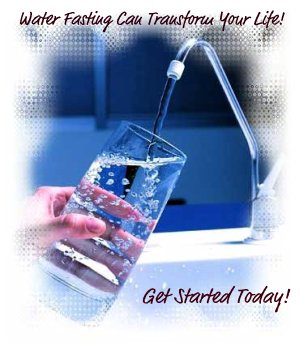
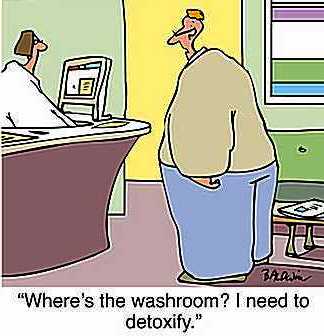


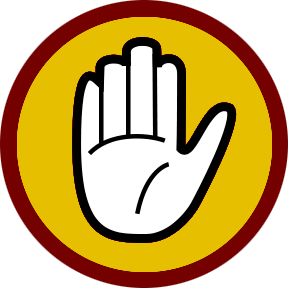
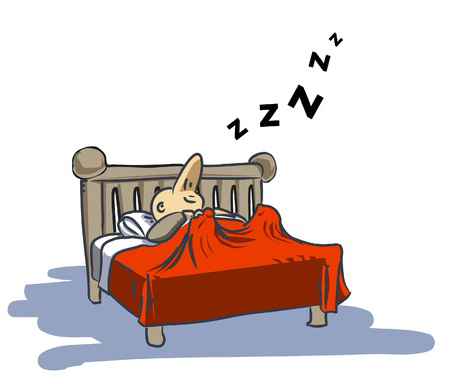


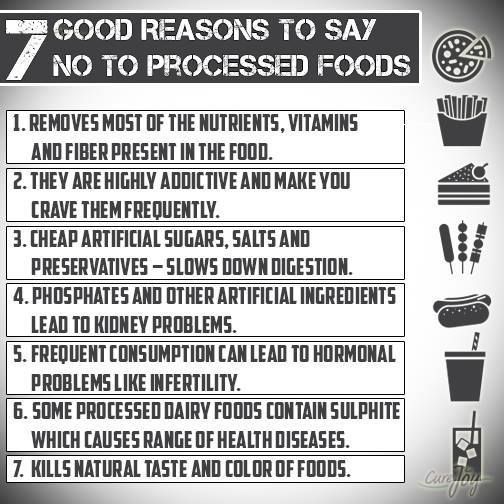
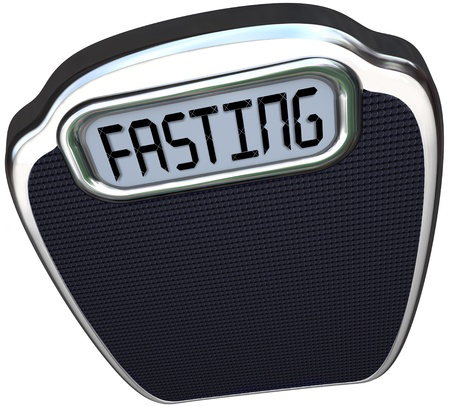

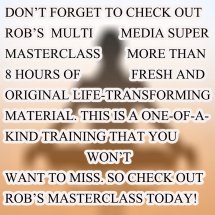
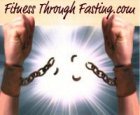
New! Facebook Comments
Speak your mind about this fasting/health topic ... :-)